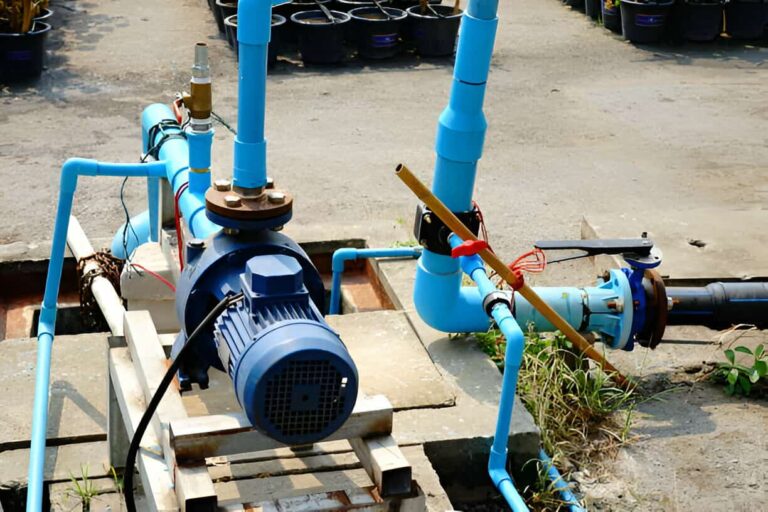The Role of Firewalls in Modern Cybersecurity
A firewall prevents unauthorized access to or from a private network. As a barrier between your secure internal network and the often untrusted external network, firewalls ensure that only legitimate and trusted traffic can pass through. This protective barrier can be implemented through hardware devices and software applications, or a combination of both, to monitor and control incoming and outgoing network traffic based on predetermined security rules.
For businesses and individuals alike, firewalls are essential for maintaining the integrity and confidentiality of their networks. By scrutinizing data packets attempting to enter or leave the network, firewalls help prevent cyber threats from reaching sensitive information. With the increasing complexity and frequency of cyber attacks, the importance of a robust firewall cannot be overstated.
Types of Firewalls
Firewalls come in different forms, each engineered to address specific security needs. Understanding these types can help in selecting the proper firewall for your network:
- Packet-Filtering Firewalls: These firewalls operate at the network layer and inspect packets based on predefined rules. Packet-filtering firewalls allow or block traffic by analyzing the source and destination IP addresses, protocols, and port numbers. This firewall provides essential yet adequate protection against many types of cyber threats.
- Stateful Inspection Firewalls: Unlike packet-filtering firewalls, stateful inspection firewalls maintain a state table and monitor the state of active connections. They decide which packets to allow through based on the context of the traffic, offering a more dynamic and robust level of security.
- Proxy Firewalls: Also known as application-level gateways, proxy firewalls act as intermediaries between users and the services they access. By inspecting the entire content of each packet rather than just the header information, proxy firewalls provide a higher level of security and can more effectively block malicious traffic.
- Next-Generation Firewalls: These advanced firewalls integrate traditional firewall capabilities with additional features such as deep packet inspection, intrusion prevention, and application awareness. Next-generation firewalls are designed to combat modern cyber threats with greater precision and efficacy.
Why Firewalls Matter
Firewalls are indispensable in today’s cybersecurity landscape, serving as a critical line of defense against many cyber threats. CSO Online states firewalls help block unauthorized access while allowing legitimate communication to flow smoothly. This dual capability is crucial in maintaining the security and functionality of personal and enterprise-level networks.
The rising number of cyber attacks and the increasing sophistication of these threats make firewalls more relevant than ever. They provide a barrier and a vigilant guard that constantly monitors and filters traffic, reducing the risk of data breaches and cyber-attacks. By implementing a firewall, you create a controlled gateway that protects your digital assets from unauthorized access.
Firewalls and Other Security Measures
While firewalls are vital, they are most effective when integrated with other security measures. A holistic approach to cybersecurity, often called defense in depth, involves multiple layers of protection. This may include intrusion detection systems (IDS), antivirus software, and robust authentication mechanisms such as multi-factor authentication (MFA).
Combining various security tools and protocols creates a more impenetrable defense. Each layer complements the other, filling in gaps and enhancing the overall security posture. For instance, while a firewall might block unauthorized access, an IDS can alert administrators to suspicious activities within the network, and antivirus software can neutralize malware before it causes harm.
How to Choose the Right Firewall
Selecting the appropriate firewall is a critical decision that depends on several factors. These include the size of your network, specific security needs, and budget constraints. A basic yet reliable firewall with essential functionalities may suffice for small businesses or personal use. However, larger organizations and enterprises with more complex networks may require advanced solutions like next-generation firewalls that offer a more comprehensive range of features.
Key considerations when choosing a firewall include:
- The expected volume of traffic
- The sensitivity of the data being protected
- Potential threats specific to your industry
- Future scalability needs
Conducting a thorough assessment of your network’s security requirements and reviewing different firewall options will help you make informed decisions.
The Future of Firewalls
As technology continues to evolve, so do firewall’ capabilities. Emerging technologies like artificial intelligence (AI) and machine learning (ML) are set to transform how firewalls detect and mitigate threats. According to a recent Forbes article, these technologies enable firewalls to identify patterns and anomalies in network traffic, making them more adaptive and responsive to emerging threats.
Integrating AI and ML can lead to more intelligent, proactive firewalls that anticipate and neutralize cyber threats before they inflict damage. This advancement represents a significant shift towards a more resilient and dynamic cybersecurity landscape, promising a future where digital networks are better protected.
Real-World Applications
Firewalls are employed across various sectors to secure critical infrastructures and sensitive information. Their applications range from protecting home networks to safeguarding essential services such as healthcare and finance. In healthcare, for example, firewalls protect patient data from cyber threats, ensuring that sensitive health information remains confidential and secure.
In the financial sector, firewalls help protect against data breaches and fraudulent activities, ensuring the security of customer data and transactional information. By forming a protective barrier, firewalls help these institutions maintain the trust and confidence of their clients, which is vital for their operations.
Conclusion and Key Takeaways
Firewalls are a cornerstone of modern cybersecurity, offering essential protection for personal and enterprise networks. By understanding the different types of firewalls and their specific functionalities, individuals and businesses can make informed decisions about their security infrastructure. Moreover, integrating firewalls with other security measures enhances their effectiveness, creating a robust defense against evolving cyber threats.
As technology advances, so will firewalls’ capabilities, ensuring they remain a fundamental component of cybersecurity strategies. Staying updated on these advancements and adapting your security measures accordingly will be vital to maintaining a resilient defense posture in the face of emerging threats.







